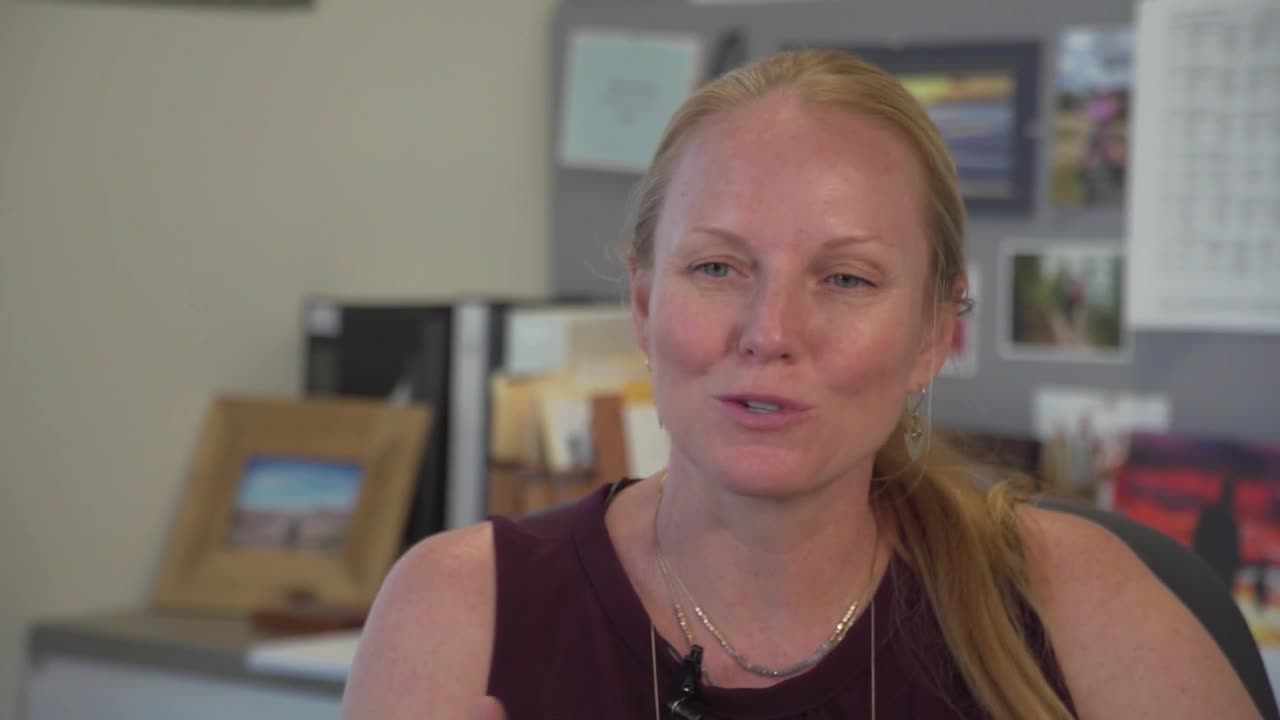DENVER — For the first time in Colorado history, every new law enforcement recruit is required to train in identifying, investigating and responding to human trafficking.
Training for this crime used to be just an elective agencies could offer. Now it's a mandated two-hour course.
"A lot of law enforcement were getting this training, but it's really critical that they understand uniformly, for every single officer on the force, to understand what is happening when they respond to a scene, and from the very beginning, start to be asking the right questions. Start to be thinking about, you know, separating potential victims from offenders so that that person feels safe," Denver's Assistant District Attorney Lara Mullin said. "How to be trauma informed in a circumstance where they're showing up and meeting somebody who's likely going to be already not trusting law enforcement, either because of their life experience or because of what the trafficker has told them about how law enforcement will see them and treat them."
It's not a course that popped up overnight. It's rooted in work human trafficking teams, units and councils have done for years. They're building relationships with police and collaborating on arrests made.
Mullin, though, said it's not a crime that is being called in.
"Oftentimes people who work in the human trafficking sector describe this as the crime hidden in plain sight, and it really is," Mullin said. "Prior to the inception of the human trafficking unit at the Denver DAs office and the creation of a dedicated team at the Denver Police Department, we just didn't have these cases, not because it wasn't happening in our community, but because we were missing it."
She said this training is critical because officers may respond to a sex assault, domestic violence or a labor dispute. Unless they know what to look for and what questions to ask, Mullin said they may never know it's a sex or human trafficking case.
"Through investigation by trained individuals who understand what this crime looks like, we then understand that there's more to the picture, and it usually takes a really long time to develop and investigate a human trafficking case," Mullin said.
Denver's Sex Trafficking Unit was created in 2017 and at the time, Mullin said they had no cases.
"And in a really short period of time, from 2017 until now, we've filed over 150 human trafficking cases," Mullin said. "We have about 45 cases that are actively being worked on right now."
Those numbers, though, don't come close to showing us the number of arrests.
"We’ve had cases that involve 20, 30, victims for a singular case," Mullin said. "Because human trafficking is a crime of opportunity, it's about money, usually where you find a singular victim or survivor, there's so many more behind it, if you just keep digging and keep looking."
This training also teaches officers how to help a victim feel safe enough to share information, instead of going straight to hard questioning.
"Law enforcement wants to show up for the vulnerable in our community. I think especially right now, they feel disconnected if they feel like people don't trust law enforcement, and so having the specialized knowledge and education and skill to be able to approach people in a more trauma informed way, in a way that builds trust and rapport because the officer is asking the right questions or providing the right resources only helps to bridge that gap," Mullin said.
Mullin also explained, Colorado isn't behind in mandating this training. In fact, she said we're probably "leagues ahead many parts of the country."
She travels herself across the United States to train and collaborate with law enforcement, and said she still hears people say, "this doesn't happen in our city."
We know now, that's not true.






